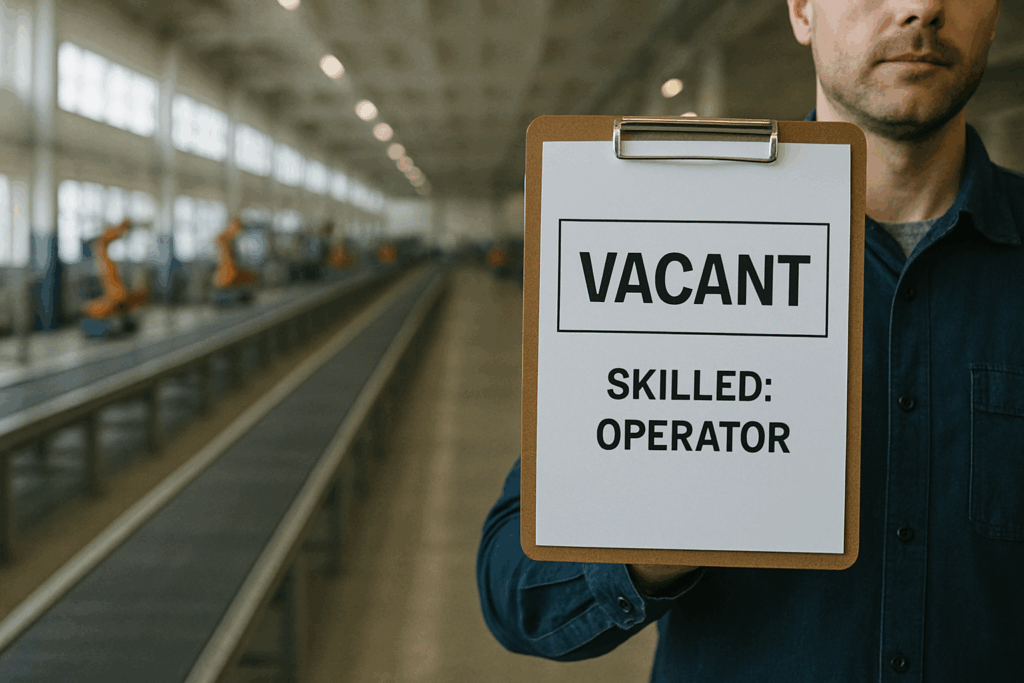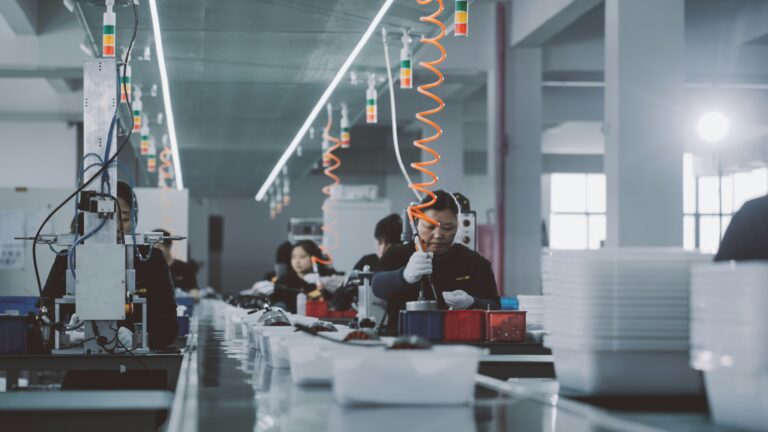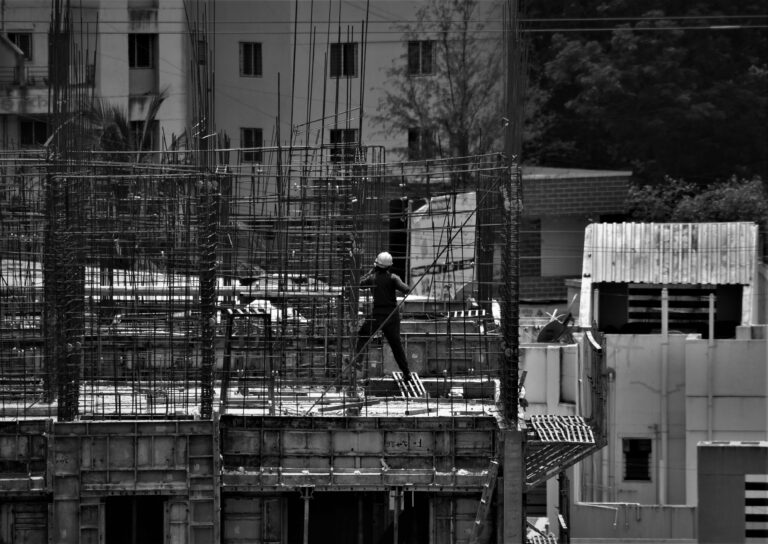Why It’s So Hard to Find Skilled Talent, And What You Can Actually Do About It

Written By: Adriana Lorenzo -Team 360 Staffing
For decades, we’ve told young people the same story:
“If you want a good future, go to college. Get a degree. That’s the path to success.”
It’s a message that shaped families, schools, and career choices across the country. But while millions of students headed off to universities, another critical part of the economy was quietly being neglected. Our factories, workshops, and production floors were running short of something just as important: qualified, skilled workers.
Today, that shortage isn’t just a future concern, it’s already here. And it’s affecting manufacturers in every corner of the country.

A Shortage That’s Slowing Down Growth
Ask any operations manager or plant leader, and you’ll hear the same story: finding qualified talent is harder than ever. It’s not just about filling roles, it’s about finding people who have the technical skills, reliability, and willingness to work in environments that demand precision, responsibility, and often, physical presence.
The numbers say it all. According to the Business Roundtable, for every one new employee with the right qualifications, there are about 20 open jobs waiting to be filled in manufacturing. That’s not a gap, that’s a crisis. The industry is already facing a deficit of at least 500,000 skilled workers, and that number is likely to increase. New technologies like AI, automation, and advanced robotics aren’t replacing workers, they’re creating a need for even more technically trained employees to operate, maintain, and troubleshoot increasingly sophisticated equipment.
Meanwhile, the job market is flooded with college graduates who can’t find work aligned with their education, while essential roles in manufacturing remain vacant. It’s a frustrating mismatch, and it’s slowing down the economy in ways that can no longer be ignored.

Why Fewer People Are Choosing Manufacturing
The challenge isn’t just about skills. It’s about perception, compensation, and the reality of working conditions. For many younger workers, manufacturing simply doesn’t feel like an attractive career path. They see service-sector jobs offering more flexible schedules, less physically demanding environments, and in some cases, better pay for entry-level work.
And sometimes, that perception isn’t wrong. Many manufacturers have struggled to compete with the flexibility and comfort offered by other industries. At the same time, modern production floors are far from the repetitive, low-tech environments of the past. Today’s facilities rely on complex systems, automated equipment, and technology that requires technical ability and critical thinking.
Operating these machines, troubleshooting issues, and keeping production flowing isn’t something you can “learn on the fly.” It takes real training, investment, and support. But when the compensation, working conditions, and career growth don’t align with those demands, it becomes even harder to attract, and retain, qualified people.

The Awareness Is Growing, But It’s Not Enough
Organizations like the Business Roundtable have recognized how critical these roles are to the economy. They’ve launched national initiatives to raise awareness, highlighting the importance of skilled trades and technical careers in keeping industries and communities running.
The message is gaining momentum. But awareness alone doesn’t fill positions. It doesn’t solve the daily challenge of trying to keep production lines moving without enough skilled hands on deck. Manufacturers face an immediate reality: demand for skilled talent is growing, and the market isn’t making it easy to meet that demand.

You Don’t Have to Face It Alone
This is where having the right workforce partner can change everything. At Team 360 Staffing, we work alongside manufacturers to help them navigate these challenges with realistic, proven strategies. We know the workforce shortage isn’t going away overnight, but that doesn’t mean your business has to slow down.
Our approach focuses on building long-term workforce solutions that reflect today’s market realities. That means helping you connect with workers who already have the technical ability or the potential to grow into it, and ensuring your hiring and onboarding process doesn’t stand in the way of getting qualified candidates through the door.
Beyond hiring, it’s also about supporting your leadership team with the tools and insight to build a workforce that stays, contributes, and evolves with your operation. Because finding the right people is only part of the equation. Retaining them, developing their skills, and building a culture that attracts talent. That’s where sustainable success comes from.

Where the Conversation Needs to Go
The manufacturing talent shortage is real. It’s rooted in years of cultural messaging, rapid technological change, and evolving worker expectations. But it isn’t an impossible problem — and you’re not expected to solve it alone.
The companies that act now — those willing to rethink how they attract, develop, and retain skilled talent — will be the ones best positioned to grow, even as the labor market continues to evolve. It starts with understanding the realities of today’s workforce and partnering with the right team to help you move forward.
If you’re ready to strengthen your workforce and stay competitive, Team 360 Staffing is ready to help. Together, we’ll build the workforce your operation depends on — today and for the future.